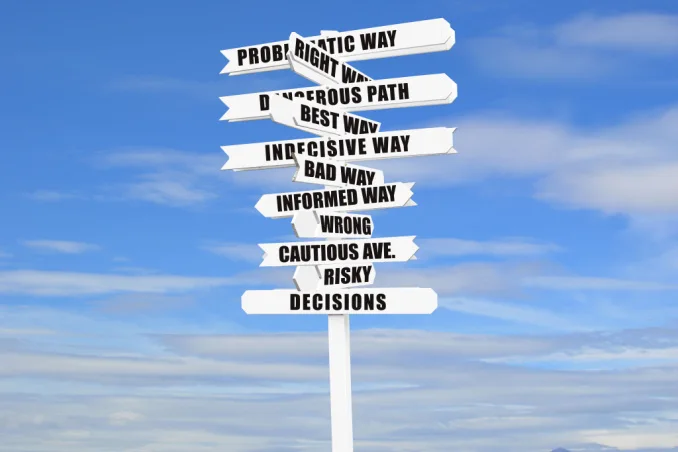Coming to Terms With Your Alcohol Use
Table of Contents
- Coming to Terms With Your Alcohol Use
- AA vs Rehab: Which is Better?
- What are the Benefits of AA?
- What are the Benefits of Rehab?
- What Levels of Care Does Rehab Offer?
- Why Drug and Alcohol Rehab Is Likely Your Best Treatment Option
- Real Examples from People Who Chose Rehab
- Alcohol Treatment Services to Meet Your Needs: Found Here
- Medically Reviewed By
Once you have accepted that you are struggling with alcohol in some way, finding the right help and resources will be needed to get relief and recovery. While ‘AA vs rehab’ is not an ‘apples to apples’ comparison, it can offer insights into what form of treatment is right for your needs in the present moment.
As you may know, there are several treatment options available today for those affected by alcohol and drug abuse. Two of the most commonly sought-out programs are recovery training groups such as Alcoholics Anonymous (AA) and established alcohol rehab facilities.
Having to choose between these two options can be a confusing and difficult thing for many people, as they may not fully understand their personal recovery needs, or which recovery services will best fit them.
Fortunately, here at Find Addiction Rehabs, we are dedicated to helping people like you understand their addiction recovery needs and find treatment programs that can help you achieve and maintain complete abstinence.
Keep reading to find out what form of treatment best fits your needs!
AA vs Rehab: Which is Better?
When determining whether attending AA meetings or a professional rehab program would best fit your recovery needs, there are many factors to be considered, including the severity of your alcohol use, as well as any personal or work obligations that may limit your treatment flexibility. While ‘AA vs rehab’ may be an unequal comparison, the analysis of their similarities and differences can definitely help you decide the best form of treatment to fit your needs.
When it comes to recovery support groups such as Alcoholics Anonymous, these can be critical for providing emotional support and connection throughout a person’s treatment journey. However, these alone may not always be enough to help someone fully overcome their habits.
This is because alcohol use disorders and especially alcohol addiction (alcoholism) are considered by most in the medical community to be a disease that affects a person’s physical, mental, and behavioral well-being. Even if someone is aware of the negative effects that their alcohol abuse is having on themselves and others, it may feel impossible to stop using on their own.
This is because long-term substance abuse can cause significant changes to the chemistry of a person’s brain, making them dependent on the abused toxin. This means that, when they try to stop using, this can result in physical and psychological withdrawal symptoms.
This is why many people will need to recover at a professional addiction treatment center, which will be able to provide evidence-based clinical and emotional support as they overcome their alcohol use disorder.
Of course, these professional programs may also often employ traditional 12-step programs in their addiction recovery approach, in order to help individuals lead a more balanced life upon achieving abstinence and maintaining independent sobriety after leaving these facilities.
Overall, when it comes to addiction and recovery, while there is a stark contrast between sober support groups like AA and more professional treatment services, which of these will be a better option will depend entirely upon the person seeking care.
Some Questions that Can Help Determine Your Needs
- Do you drink alone?
- Do you begin to experience withdrawals when stopping your regular alcohol intake?
- Have you tried stopping on your own and been unable to do so?
- Do you feel as though AA may not fit your lifestyle or needs?
If you have answered ‘yes’ to any of the above questions, it may be helpful to find a form of support different than AA, or with higher levels of support and accountability than Anonymous groups are able to provide their members.
This is not to say that AA cannot or will not still be helpful, but rather that a higher level of medical care and supervision may be needed before 12-step groups are the right form of support on their own.
What are the Benefits of AA?
Alcoholics Anonymous is an abstinence-based program that works to treat alcoholism through having people attend meetings, where they are able to receive peer support and relinquish control over their addiction to a higher power through fellowship and the Steps.
Measuring the effectiveness of a self-management-based recovery program can be difficult, as how well a person can stay sober without clinical support will depend entirely upon their own ability to abstain from alcohol.
Some people may even choose to participate in a non-abstinence-based recovery group, such as moderation management, which focuses more on helping those with mild alcohol misuse, rather than a full-blown alcohol use disorder.
Of course, attempting to control drinking rather than stopping one’s substance use altogether is rarely recommended, as it does not stop the problem, and can encourage participants to continue using this substance, which may still lead them down the path of addiction.
With that being said, there are several benefits to participating in Alcoholics Anonymous or any other secular alternative recovery program. The two biggest benefits of these programs include affordable recovery support and more flexible treatment options.
Affordable Recovery Support
Programs such as AA and other secular recovery alternatives offer necessary peer support and resources at little-to-no charge, which can be extremely helpful for those with unavoidable financial limitations.
When considering Alcoholics Anonymous and other secular organizations, such as SMART Recovery, offer free support and access to anyone interested in joining, with no membership fees to worry about.
Unfortunately, one of the biggest things that often dissuades people from seeking out addiction help is the often overwhelming cost of treatment. These programs remove that financial barrier, allowing individuals to focus entirely on their recovery journey.
Flexible Recovery Option
One of the other major benefits of AA participation is that this organization is widely known for its flexible meeting times, locations and schedules. It is also fairly easy to locate a meeting near your specific location that can work with your personal and work life. For both SMART Recovery and 12-step programs, online meetings are also increasingly popular, with AA chat rooms leading the way in popularity but alternatives gaining ground quickly in recent years.
Whether struggling with alcohol or drugs, finding a support group near you that offers flexible treatment and recovery resources can be a pivotal aspect of your journey to achieving and maintaining sobriety.
What are the Benefits of Rehab?
For those who are seeking long-term recovery, professional alcohol treatment is always a better option, especially for those with more severe alcohol addictions. While participating in a 12-step program can certainly be a helpful holistic approach to recovery, AA may not be enough by itself.
Finding a treatment provider who can offer both clinical and emotional support will be necessary when managing the harsh withdrawal period that comes when stopping one’s alcohol use, as well as for continuing to maintain abstinence once this dependence has been broken.
AA is a lifeline for many in the recovery community. It is not, however, a medical detox. As alcohol can form one of the most dangerous substances to withdraw from, the risks of alcohol detox should be carefully considered when weighing ‘AA vs rehab’ for yourself or your loved one.
Holistic Treatment Approaches
When recovering at professional treatment facilities, whether these be inpatient or outpatient programs, individuals will have a much higher likelihood of reducing alcohol dependence and maintaining long-term sobriety.
This is because this treatment process will allow individuals to overcome not just their substance abuse, but often the underlying causes of these addictive habits, as well. Not only will individuals be able to receive medical support and supervision, but they may participate in various therapies as well, including:
- Cognitive Behavioral Therapy or CBT
- Motivational Enhancement Therapy
- Dialectical Behavioral Therapy
- Individual, Group, and Family Therapy
By addressing a person’s whole well-being, rather than simply focusing on the substance abuse itself, these programs can help recovering individuals better understand their addiction, allowing them to better avoid slipping back into these self-destructive habits in the future.
What Levels of Care Does Rehab Offer?
There are several different types of rehab programs a person may choose to participate in to overcome their drinking problem. Which of these facilities they will seek out can vary based on several factors, including how long their addiction has gone on and how severe it is.
For many people, their alcohol treatment process will include seeking out one or more of these main recovery options:
- Medically Supervised Detox
- Inpatient/Residential Treatment
- Outpatient Treatment
- Aftercare Recovery Services
Following a progression through each of these treatment services can provide individuals with the necessary guidance and structure throughout their recovery journey, providing essential support each step of the way.
While some of these treatment options may be more expensive than others, in many cases, you may be able to have your insurance cover treatment, or at least a portion of it, making your personal expenses significantly less stressful.
Inpatient or Residential Rehab Programs
If you or a loved one is looking for more intensive and highly structured treatment, then inpatient/residential rehab centers may be your best choice.
These recovery centers will require you to live at your specific treatment center while recovering so that you can receive regular support as you overcome the hardest parts of your addiction recovery process.
These treatment centers will also help you to leave behind the stress and temptations of the outside world, which will allow you to establish a primary focus on your recovery process.
This will not only reduce your risk of relapse but will allow you to be provided with absolutely essential comfort and support during the more difficult moments in your treatment journey, which you would otherwise be unable to receive through lower levels of care.
Outpatient Addiction Treatment Programs
If you need a more affordable and time-flexible treatment approach, outpatient rehab may be a better choice for your recovery needs. Of course, while more lenient, this level of care will require a significant amount of self-control.
This means that outpatient services may be best for individuals who have a reliable support system that will be able to help keep them on track with their recovery.
Outpatient treatment will typically offer various behavioral therapies and recovery support groups, which are usually held several times a week. Unlike with inpatient treatment, you do not have to live at your recovery center.
This allows for more affordable and flexible treatment, which will help you to continue managing any personal, work, or school obligations that may otherwise be put on hold when participating in a medical detox or inpatient program.
Why Drug and Alcohol Rehab Is Likely Your Best Treatment Option
While 12-step and alternative secular organizations can certainly be effective in helping people to manage their substance use, overall, professional drug and alcohol rehab services are your best option for fully overcoming your addiction.
Of course, there is always the option of combining these two paths to recovery. In fact, many people will seek initial treatment through more evidence-based and clinically structured recovery programs, and continue to receive support through 12-step programs such as AA afterward.
Ultimately, the level of care that a person chooses to receive will be entirely up to them and what they feel is best for their treatment needs.
If you are not sure what type of treatment will work for you, speaking with an addiction specialist, such as our team of recovery representatives, can help you narrow down these options. Please reach out today to discuss your hesitation in going to inpatient treatment, and find out about all forms of resources available now!
Real Examples from People Who Chose Rehab
If you’ve been looking for treatment with Alcoholics Anonymous alone or struggling to find sobriety for long enough to begin attending meetings regularly, let’s look at some real-world examples of why choosing inpatient treatment made getting sober easier for clients who called on Find Addiction Rehabs.
-
Remove Yourself from the Chaos
Whether you have a family or not, the environmental temptations to drink and/or use drugs are almost always amplified on your ‘home turf.’ A caller to Find Addiction Rehabs that found lasting sobriety through inpatient treatment was genuinely shocked at how much easier it was to put together his first week sober in twenty years.
“I became well known at the AA meetings in my town as a ‘white chip wonder,’ and although they were kind and welcoming, everyone knew I couldn’t stay sober much past the close of the meeting. I would go home with the best of intentions, only to be pouring myself a drink within the hour. When I finally took the plunge and flew to a rehab that let me put distance between myself and my drinking habits, I began to see ways out of constant boozing.
I have over two years sober now, and just picked up my anniversary coin at the same meeting I got dozens of white chips from before, all because I gave myself 30 days to really give recovery a chance.”
-
Practicing Tools and Sober Skills in Safe Settings
For many of us who have issues with drinking, it can seem like a black-and-white sort of situation. If I’m committed to staying sober, shouldn’t that hold up no matter where I go? This next client provides a reminder of why it isn’t always the case:
“My friends used to joke about how I could be a model for sobriety, as long as it was during the week. I would swear off alcohol after a boozy weekend and hungover Monday and make it to Friday with the best of intentions. Then I would take my son to a birthday party and see the dads in a circle, sipping on beer that looked impossibly cold and delicious. Then even if I could make it through the party without drinking, I would stop at a package store on the way home and be off and running all over again, with my wife getting increasingly frustrated at the whole process.
It wasn’t until I hit rehab that I found out urges didn’t mean I had to drink, and that I could ‘play through the tape’ and free myself from the consequences of actions I didn’t want to be taking. For some people, meetings alone get them sober. I know for me, I needed more.”
-
The Foundation Needed for an AA Follow Through
For many people, the idea of going to AA meetings is the plan that keeps getting put off, the sure path to sobriety they can take ‘anytime.’ In reality, it is not that easy, as a successful client and alumni of Find Addiction Rehabs found out for herself.
“I kept telling myself I could get sober any time I wanted. AA worked for my father and I knew from our family stories just how bad he had gotten. AA even worked for my little brother, so I knew it would work for me. I just wanted to keep drinking for a bit longer, since drink and work were the only things that gave me any real relief. With each blackout and each time my doctor looked at my liver function panel with his eyebrows raised, I would think to myself: I’ll start going to AA. But I never did.
The only thing that really got me to find AA was, funny enough, going to rehab first. And even that wasn’t my choice. After I woke up behind the wheel of my car, parked in my neighbor’s driveway with a police officer knocking on my window, I was ordered to attend inpatient treatment. And I finally found the foundation for AA I needed, with the distance and time taken away from alcohol provided by rehab.”
These examples are just a few of the stories from callers to Find Addiction Rehabs that found meaningful participation with AA – only after having been given the time and distance from their drinking found through detox and residential treatment. If you are struggling with alcohol, the foundation offered by rehab facilities really can make all the difference.
Alcohol Treatment Services to Meet Your Needs: Found Here
If you or a loved one is struggling with alcohol addiction, know that you are not alone, and help IS available. At Find Addiction Rehabs, we can provide you with professional treatment advice and recovery information 24 hours a day, 7 days a week.
Getting the necessary help for you or a loved one is the start of being free from alcohol. It is never too late to start your recovery journey. Make a confidential call now to get started on your path to sobriety, today!
Eric R. hails from Maine and does extensive work in the field of behavioral health as both a professional writer and passionate advocate for those suffering. From his own personal encounters with mental illness, he speaks to those seeking healthy relief from depression and anxiety and embraces wellness both personally and professionally. After losing friends and family to the darkness of suicide, Eric aims to educate and inform about the nature of treatment and render it accessible for all those seeking a way out of darkness and despair.







